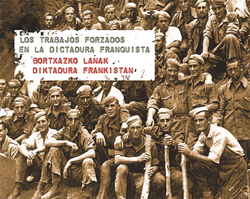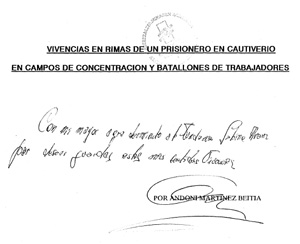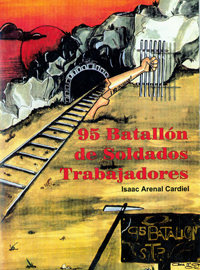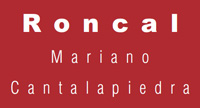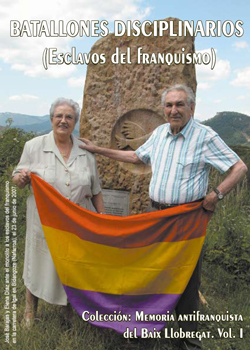
Desde hace ya unos años Álvaro Fernández Alonso ha sido uno de los asistentes fijos al homenaje que se celebra en el Pirineo navarro a los esclavos del franquismo. Aquí le conocimos, y aquí sentimos la fuerza de su palabra y de su presencia, desde que llegó acompañando a la familia de Pepe Barajas y Elena Díaz, junto con sus compañeras y compañeros del Col·lectiu Republicà del Baix Llobregat y del Ateneu Republicà de Gràcia (Barcelona).
Aquí le conocimos, le sentimos a nuestro lado, en el trabajo por esclarecer toda la barbarie del franquismo, por homenajear a su víctimas, y también por exigir la defensa de los derechos de las personas y de los pueblos, en especial de las y los trabajadores. Le conocimos aquí, sumándose a un homenaje que también era para él, debido a lo que le tocó sufrir por su militancia antifranquista y anticapitalista.
Aquí te conocimos, Álvaro, junto a una escultura que nos recuerda que entendemos la memoria como un ejercicio de libertad permanente, de denuncia y de dignidad permanente. Por eso, porque así te hemos conocido, así también te recordaremos, sintiendo la fuerza de tu palabra en la denuncia de los crímenes del franquismo y sintiéndola también cuando nos resistimos a las normas de esos nuevos y viejos gobernantes, “los mercados”, esos que pretenden ahora recortar aún más nuestros derechos. Así te vas, y así te quedas, sintiendo y agradeciendo tu presencia.
Besarkada handi bat!
Memoriaren Bideak taldeko zure lagunok



